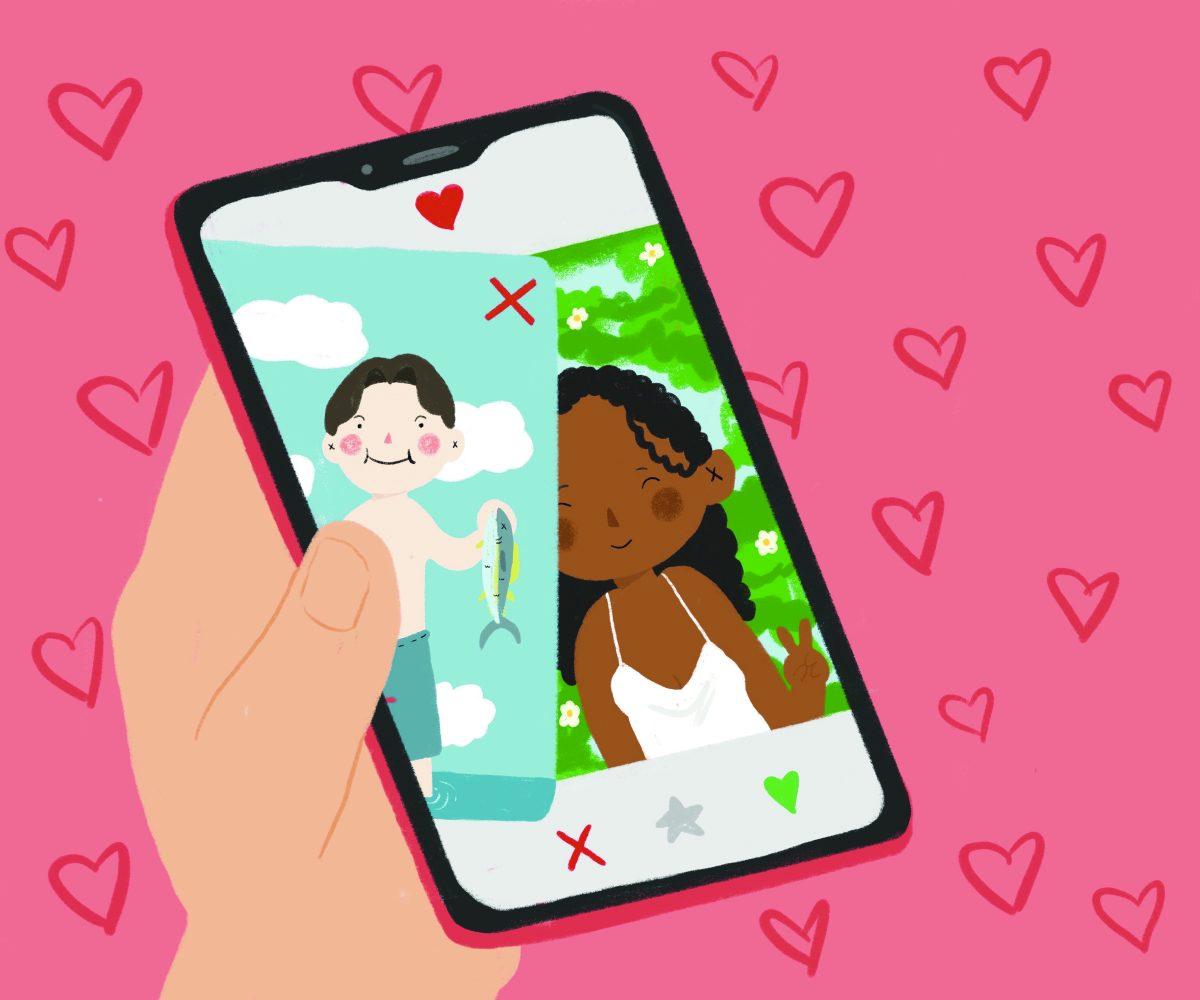In an age where seemingly everything has become electronic, it’s no surprise that dating has found its way into the digital scene. From Tinder and Bumble becoming the norm for 20-somethings looking for love to Instagram DMs replacing traditional meet-cutes, dating apps and other digital forces have found love — and sometimes disaster — for many.
Tommy Jenkins, lecturer in the English department, said the emergence of dating apps was inevitable due to the creation and evolution of social media, particularly since the late ‘90s.
“What’s one of the major developments since the 1990s?” Jenkins said. “Well, obviously, the internet and the rise of social media. Everybody’s on social media now.”
Match.com, the world’s first dating website, was released in 1995. Given the horror stories many seem to have about their dating app experiences, it might seem surprising that the platforms have endured nearly 30 years.
Anna Behler, assistant professor in the Department of Psychology, said regardless of these seemingly endless stories of negative experiences with dating apps, the platforms are gaining popularity.
“I think they get a bad reputation,” Behler said. “Everybody knows stories, … that you might have to go through a bunch of negative experiences. But actually, there is research showing that most people now are meeting people in some sort of online or app-based setting.”
Behler said along with an increase in the popularity of dating apps, there has been an increase in people finding love through social media apps such as Instagram.
“You could start interacting with them through social media, through DMs,” Behler said. “People may not consider that online dating. They might feel like that’s more of an organic meet up, even though it’s sort of the same thing. You’re meeting them through the use of technology, but it’s not a complete stranger in the way that meeting somebody on a dating app is.”
Behler said the difference between using formal dating apps and using traditional social media to find connections is rooted in individual preference.
“It’s going to be up to each individual user,” Behler said. “And I think that might be what makes it feel difficult to connect because you have a bunch of people, many of whom have different motivations.”
Behler recognized there are pros and cons to the digital world — including the world of online dating.
In general, Behler said, people using dating apps or looking for romantic connections through traditional social networks are aiming to find some sort of relationship. The differences in motivations of different people on dating apps come from the kinds of relationships they may be looking for and may be what lead to the seemingly endless amounts of dating app disaster stories.
Behler said the differences in intention and unclear motivations perceived through online communication may lead to the frustration and disappointment many people face through dating apps and digital connections.
“You may have some people who are there just for a short term thing, some people who are looking for a serious commitment,” Behler said. “And if the communication isn’t good from the start, and if those intentions aren’t clear, that can be really frustrating for people.”
Many point to social media as something that has exemplified isolation and loneliness in society. Behler said that in relationships, they can do the same.
“There was research published or a survey a few years ago that said over half of long-term committed couples are frustrated with their partner’s cell phone or technology use,” Behler said. “And so we’re seeing that the loneliness thing is not just something that’s affecting single people.”
Behler recognized that while dating apps, like all other forms of digital social media, can connect people, they also have the potential to exemplify loneliness.
“Dating apps themselves, … when it goes well and when there’s good communication, even if the relationships don’t turn into something, can certainly reduce that feeling of loneliness,” Behler said. “But I do think, just like with an in-person relationship, if things start to sour, that can make you feel isolated.”
Behler said as dating apps gain popularity, companies are becoming more receptive to consumer preferences and adapting to demand, and improved platforms may lead to increased successful connections.
“Over time, I think that dating apps will improve from the user perspective,” Behler said. “Companies want to make sure that they keep in business. So they’re going to want to do things to improve the ways that people connect on them.”








